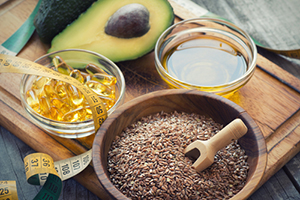 Could a daily dose of this simple vitamin be the answer to those who suffer from ED?
Could a daily dose of this simple vitamin be the answer to those who suffer from ED?
The clear answer is a resounding ‘YES,” from a new study conducted at the University of Milan in Itay.
And the best part is that this vitamin is dirt cheap and available in all supermarkets and health food stores. And you can even get it for free some places.
Alessandra Barassi, MD, and her colleagues of the University of Milan in Italy conducted a study of 143 men with varying degrees of erectile dysfunction, and reported that insufficient levels of vitamin D may spur the production of free radicals called superoxide ions.
These free radicals deplete your nitric oxide, a molecule that helps your blood vessels function properly.
Similar research carried out by John Hopkins University has been released to the American Heart Association that shows that there is a strong correlation between a vitamin D deficiency and impotency.
A vitamin D deficiency is defined as below 20 nanograms per milliliter of blood. The men with a vitamin D deficiency were 32% more likely to have erectile dysfunction than men with adequate vitamin D levels.
While these studies were observational, it’s enough to spark interest into further research to determine the possibilities, and whether this latest research could be viewed as a clinical maker for ED.
The easiest and cheapest way to obtain vitamin D is to sit in morning sun for about 25 minutes with 25% of your skin exposed.
The best food sources of vitamin D can be found in fatty fish such as herring, sardines, and mackerel, and fish liver oils. Salmon is also a great source of lean protein and omega-3 fatty acids; one small fillet will provide your recommended daily vitamin D intake. Small amounts of vitamin D can also be found in beef liver, cheese, and eggs.
You can also take daily supplements. The Institute of Medicine recommends a daily vitamin D intake of 600 international units for adults between 18 and 70 years of age, and 800 international units for those over 80.
You should, however have your vitamin D level tested before taking supplements, since too much vitamin D, can be just as bad as too little.

 Overcoming IBD
Overcoming IBD Multiple Sclerosis
Multiple Sclerosis Banishing Bronchitis
Banishing Bronchitis Gum Disease Gone
Gum Disease Gone Overcoming Onychomycosis
Overcoming Onychomycosis Neuropathy No More
Neuropathy No More The Prostate Protocol
The Prostate Protocol Brain Booster
Brain Booster
 Ironbound
Ironbound
 Solution for Shingles
Solution for Shingles
 The Bone Density Solution
The Bone Density Solution
 The Ultimate Healing Protocol
The Ultimate Healing Protocol
 The Parkinson's Protocol
The Parkinson's Protocol
 The Chronic Kidney Disease Solution
The Chronic Kidney Disease Solution
 Overthrowing Anxiety
Overthrowing Anxiety The Fatty Liver Solution
The Fatty Liver Solution The Hypothyroidism Solution
The Hypothyroidism Solution
 The End of Gout
The End of Gout The Blood Pressure Program
The Blood Pressure Program
 The Oxigized Cholesterol Strategy
The Oxigized Cholesterol Strategy
 Stop Snoring And Sleep Apnea Program
Stop Snoring And Sleep Apnea Program
 The Arthritis Strategy
The Arthritis Strategy The Vertigo & Dizziness Program
The Vertigo & Dizziness Program The 3-Step Diabetes Strategy
The 3-Step Diabetes Strategy Hemorrhoids Healing Protocol
Hemorrhoids Healing Protocol The Erectile Dysfunction Master
The Erectile Dysfunction Master Weight Loss Breeze
Weight Loss Breeze The IBS Program
The IBS Program The Insomnia Program
The Insomnia Program The Migraine and Headache Program
The Migraine and Headache Program The Neck Pain Solution
The Neck Pain Solution The Menopause Solution
The Menopause Solution The Ejaculation Master
The Ejaculation Master The TMJ Solution
The TMJ Solution The Acid Reflux Solution
The Acid Reflux Solution The Fibromyalgia Solution
The Fibromyalgia Solution The Psoriasis Strategy
The Psoriasis Strategy
Vitamin B and E are equally important.